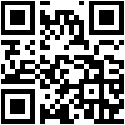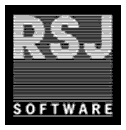Enterprise Features
Creating labels is a cooperate environment requires more functionality than just rendering labels.
That is where you can profit from our 25+ years of experience in label printing.
LPSNG contain features that support centralized and decentralized deployments.
Multi User Support
LPSNG can be used in a single user scenario as well as in multi user scenarios.
User may own:
- Designs (and associated resources)
- Print Jobs
- Printers
Print jobs can be addressed to specific users (or groups of users).
The system also support multi region use (even on the same server):
- Time zone is based on client machine
- Language is based on client browser and can be changed with 2 mouse clicks
- We use unicode characters throughout the system (including right to left and Arabic)
User may log in multiple times from different clients.
Job Queues
When print jobs are received through the web service interface they can be either printed automatically or queued in an user (or group) specific job queue.
Jobs in the print queue can be:
- Viewed on screen
- Assigned to a printer (by drag & drop)
- Reprinted
- Sorted
- Deleted
Resource Sharing
Users may share resources with others.
Users can:
- Share links to resources via email or web (they are just URLs)
- Package resources (with all dependencies like fonts, bitmaps, test data) for import on other systems
Single Sign On
LPSNG supports different ways to identify users:
- OpenID Connect (the new web standard)
- Our own integrated user database
- Authentication via Microsoft Windows
Roles
Each user is assigned a role. This allows you to limit access rights of individual users.
Common role types include:
- Admin (controls the system)
- Designer (creates new layouts)
- User (prints them)
- Device (just controls one device)
User Groups
Users can be member of one or more groups.
Groups can share:
- Printers
- Job Queues
This allows you to associate LPSNG with real people and still route print jobs to functional users.
Integrated Wiki
LPSNG has a simple Wiki integrated. This wiki allows you to easily distribute project specific information to your users.
The wiki system supports:
- Markdown syntax
- Hyperlinks
- Graphics
Configuration File
LPSNG is configured via JSON configuration files parsed at server start.
Each configuration normally extends (ie overwrites) part of the configuration it is based on.
This allows you to have a project configuration file (which include the majority of the settings) and individual files for each installation.
This structure simplifies updates, because you normally just update the project configuration.
The same mechanism is used when new software features are introduced. LPSNG includes a base configuration on which all project configurations are based. This allows software upgrades without changing any of your configuration files at all.
Web Service Interface
LPSNG includes web service interfaces to:
- Submit print jobs
- List resources (eg designs) for a specific user
- Create a design template (from data)
- Get user authentication information (OpenID Connect)
- Vision system integration
Authentication of the web service interface is based on OAuth2.
Print jobs can be submitted in:
- XML
- JSON
- Excel Format (XLS and XLSX)
- CSV
Scripting
Sometimes information required on a label is not (easily) available in a host system (or not in the form needed). That is why LPSNG supports Python scripts that can modify any field before it is printed.
Installer
LPSNG comes with an installer program that includes all software components.
The installer can be tailored (for bigger projects) to:
- Distribute configuration files
- Install user accounts
- Distribute resources
- Update the project wiki
Backup
All LPSNG data can be backed up (to a single file) without stopping the server.
The backup can be restored on a different server instance.
Multi Device Support
LPSNG produces standard output formats (PDFs, bitmaps). So supporting heterogeneous environments with different printers or electronic shelf labels (ESL) is not a problem.
Multi Processor Support
LPSNG has support for multi processor machines. If licensed for multi processor use, LPSNG is able to render multiple print jobs at the same (each on it's own processor).
Licensing
LPSNG uses an installation specific license file which controls the licensed functionality.
This makes distribution of common installers and flexible licensing arrangements possible.
Use Cases
- Features
- Interfaces
- ESL
- Deployment
- Presentation Slides
Contact
Contact us for more information:
Either
or fill out the form for an email
Or contact us directly:
RSJ Software GmbH
Holzstrasse 4
82120 Germering
Germany
Phone: +49 89 89 41 42-0
Fax: +49 89 89 41 42-80
E-Mail: info@rsj.de



